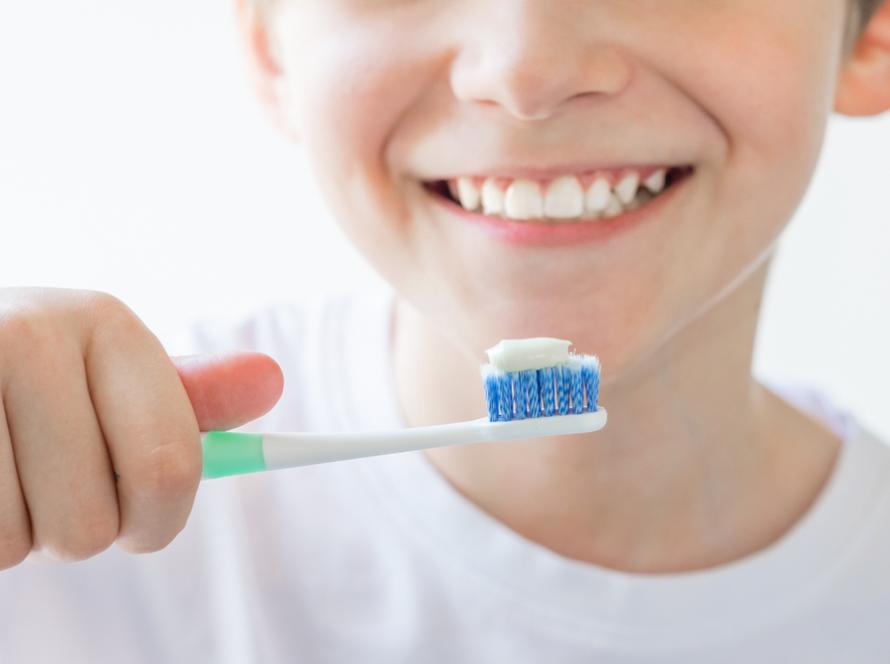If your child resists brushing their teeth every day—melting down, running away, or clamping their mouth shut—you’re not alone. And it’s not always about defiance or laziness. For many neurodivergent kids, especially those with autism or sensory processing challenges, the issue runs deeper. What feels like a simple routine for most can feel overwhelming and even painful for a child experiencing sensory overload.
Let’s unpack how sensory sensitivities can affect kids’ oral hygiene routines and what tools and strategies can help make brushing a more manageable experience.
Why Brushing Triggers Sensory Overload
Imagine trying to brush your teeth while every bristle feels like sandpaper, the toothpaste burns your mouth, and the buzzing of an electric brush sounds like a chainsaw in your ear. That’s what brushing can feel like to a child with heightened sensory sensitivity.
Sensory challenges tied to kids oral care can include:
- Tactile sensitivity: Bristles may feel too rough, or the toothbrush may trigger a gag reflex.
- Taste sensitivity: Mint or fruity toothpaste flavors may be too intense.
- Auditory overload: Electric toothbrushes may be unbearably loud.
- Resistance to routine: The pressure to brush at a specific time may feel controlling or intrusive.
For neurodivergent kids—those with autism, ADHD, or sensory processing disorder—these aren’t minor annoyances. They’re real barriers that can derail their ability to maintain consistent kids oral hygiene habits.
Redefining Oral Hygiene: Support Over Struggle
If brushing feels like a daily battle, it’s time to rethink the approach. The goal isn’t to force compliance—it’s to support your child with the right tools, environment, and strategies that respect their sensory profile.
1. Let Them Choose the Tools
Empower your child by giving them control over what goes in their mouth. Look for:
- Soft or silicone toothbrushes: These are gentler on sensitive gums.
- Toothbrushes with small heads: Less intrusive and easier to manage.
- Flavorless or mildly flavored toothpaste: Avoid the intense mint blast.
- Manual brushes: For kids sensitive to vibration and sound.
- Timer apps or musical toothbrushes: Make the experience more playful and less stressful.
You may need to try several combinations before finding what works. That’s normal.
2. Create a Calm Brushing Environment
Minimize sensory triggers in the environment:
- Dim the bathroom lights.
- Use noise-canceling headphones if brushing noise is a problem.
- Allow your child to brush in front of a mirror or even in a different room if it helps.
Routine matters, but flexibility matters more when working with neurodivergent kids.
3. Use Visual Schedules and Social Stories
Visual cues help make the process predictable:
- Try a picture-based sequence that breaks down the brushing routine step by step.
- Use social stories to show what brushing is, why it matters, and what they can expect.
Predictability reduces anxiety—and with it, resistance.
4. Desensitization Can Help Over Time
Slow exposure to brushing, done gradually and with no pressure, can build tolerance:
- Start by just holding the toothbrush near the mouth.
- Then progress to touching lips, then teeth—step by step, over days or weeks.
- Celebrate progress, however small.
This process takes time, but it can make a huge difference in building positive kids oral care habits.
When Brushing Feels Impossible: Pediatric Dental Sedation
In some cases, at-home oral hygiene just isn’t enough. When kids can’t tolerate even basic cleaning due to extreme sensitivities, dental professionals can step in with pediatric dental sedation. This allows dentists to perform cleanings, exams, or even restorative work in a controlled, stress-free way for both the child and the parents.
Sedation isn’t a first resort, but it’s a safe and effective option when sensory overload makes routine care impossible. It can be the bridge that helps kids with neurodivergent needs stay healthy while long-term strategies are still developing at home.
Talk to your pediatric dentist about:
- Which types of sedation are appropriate
- How they tailor care to sensory-sensitive kids
- What pre- and post-visit support is available
Bottom Line
Kids who avoid brushing might not be fighting you—they might be fighting discomfort, fear, and sensory overwhelm. Understanding this can completely shift your approach from conflict to collaboration.
With the right tools, a calming environment, patience, and—in some cases—support like pediatric dental sedation, kids with sensory sensitivities can still build strong kids oral care habits for life.
Don’t give up. Adapt. Support. And keep showing up for your child’s needs.


